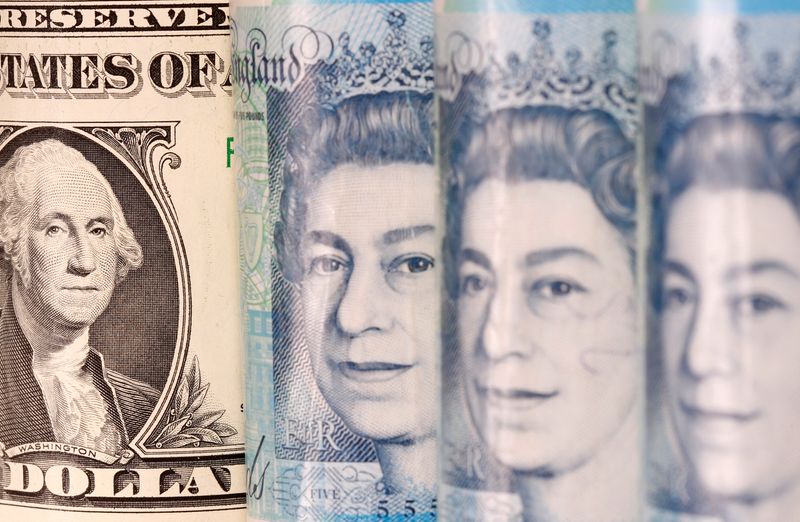By Harry Robertson
LONDON (Reuters) – The pound was steady on Monday after falling to a six-month low last week as the dollar rose following Donald Trump’s victory in the U.S. presidential election.
Sterling last rose 0.1% to $1.2627, compared with $1.2598 on Friday, its lowest level since mid-May.
Trump’s election victory on November 5 has sent yields up about 3% as investors bet that trade tariffs and lower taxes will boost growth and inflation, leading to fewer interest rate cuts from the Federal Reserve.
These expectations have caused Treasury yields to rise sharply, pushing the dollar higher as U.S. bonds become more attractive.
Sterling has fallen about 2.7% since the election, although it has outperformed the euro, which many traders believe will bear the brunt of higher US rates that are likely to target China, Europe’s Union and Mexico.
“The recent weakness in the British pound has very much been a story of the strength of the US dollar,” said Matthew Amis, investment director at asset manager Abrdn.
“From a GBP perspective, we see little reason to correct the recent decline,” he said. “The Bank of England may continue to signal gradual cuts, but the growth story in Britain will need to be more compelling for markets to change.”
Data on Friday showed the British economy shrank unexpectedly in September and growth slowed to just 0.1% in the third quarter, leading to a sixth day of losses for the pound.
Traders see a roughly 80% chance that the Bank of England will cut rates again next month, and see rates falling by around 65 basis points to just above 4% by the end of next year. The BoE rate is currently 4.75%.
The relatively slow pace of expected cuts has supported the pound this year, which is set to fall 0.8% against the dollar in 2024, compared with a 4.3% decline in the euro.

The euro fell to a 2.5-year low against the pound of 82.62 pence early last week as investors bet Trump’s tariffs would be worse for the euro zone than for Britain.
The price last rose 0.23% to 83.70 pence, after also rising on Friday in the wake of weak UK data.


